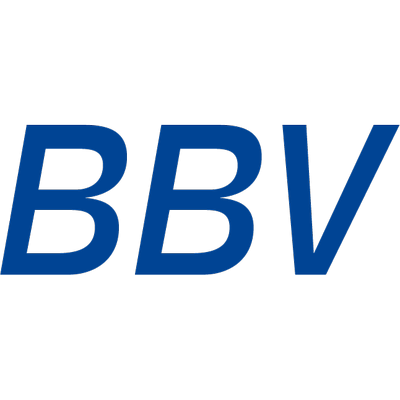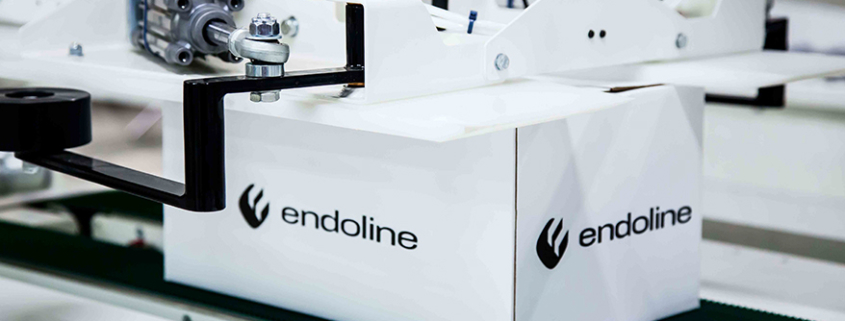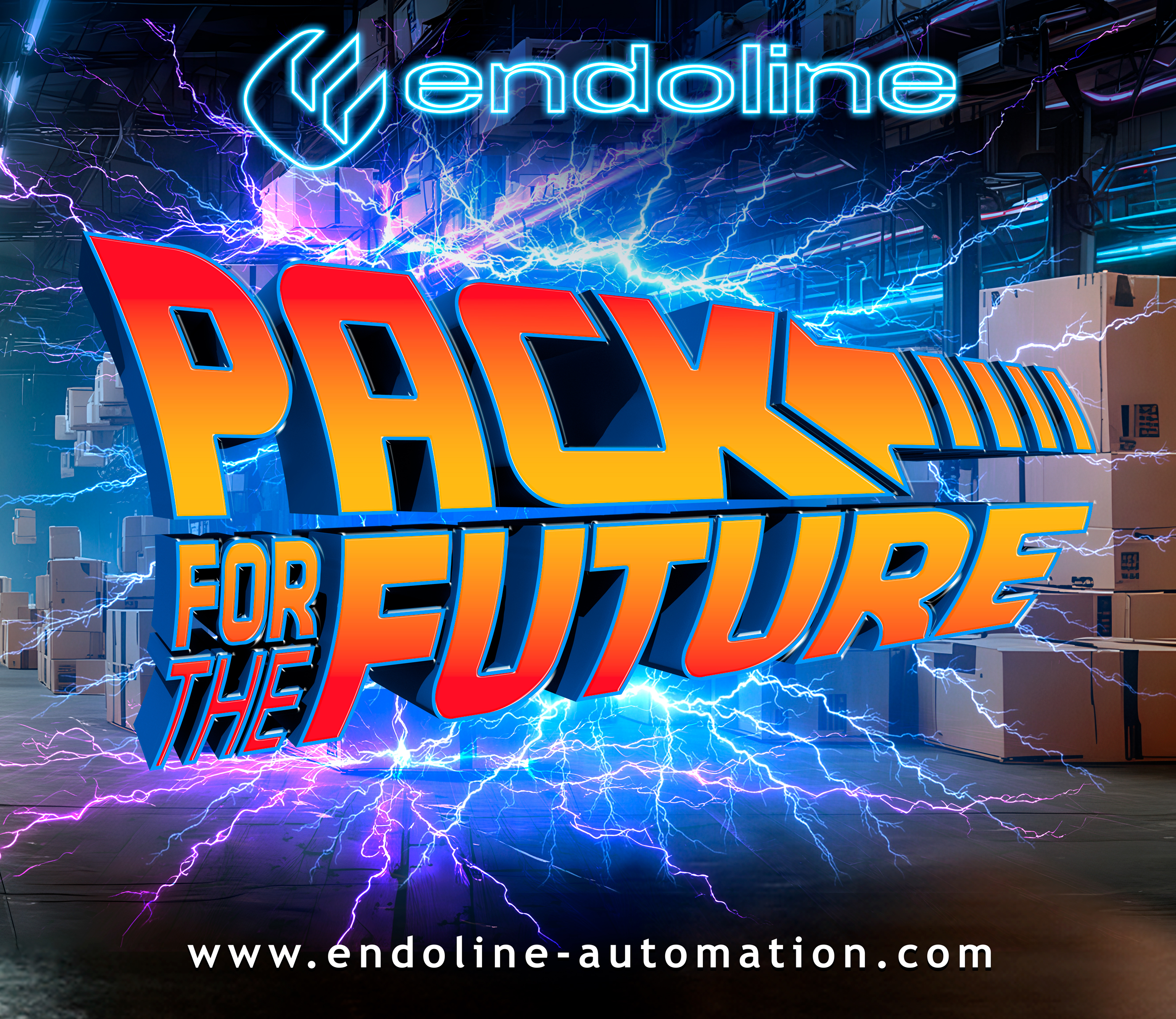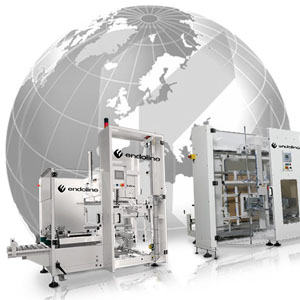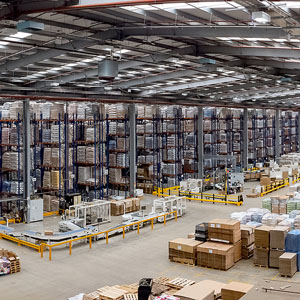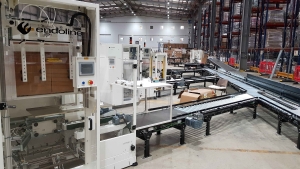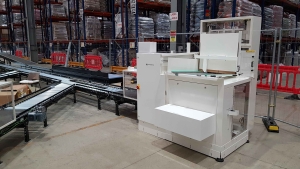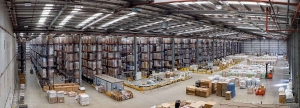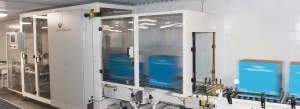Just like its ‘filmsake’, Endoline Automation has taken a time-traveller-themed trip, with nods to nostalgic packaging concepts of the past as well as unknown packaging hypothesis of the future.
Founded in 1981, Endoline Automation is to manufacturing what the DeLorean’s flux capacitator is to packaging plot twists and bending the rules of time. Now in its fifth decade and third generation of Yates leadership, Endoline’s recently showcased its legacy and enduring success as a true packaging machinery pioneer and trailblazer PPMA 2024.
Under the title, Pack for the Future, the cast and crew explored how Endoline has helped processors adapt to each and every emerging packaging trend from the past four decades. As well as showcasing how the company continues to gain universal acceptance for its automated systems across the globe.
Throughout the eras, packaging has become synonymous with food protection, waste reduction and the ultimate symbol of convenience-culture. From the early 1980s, when barcodes were first introduced – before this every supermarket product was priced and dated manually using sticker guns – packaging has adapted to consumer needs.
In a short space of time, manufacturers focused on making products easier to carry, faster to open, quicker to reseal, simpler to dispose of, and more sustainable. Alongside this functionality, smart technologies started to roll out in the 1990s. Around the same time, extended opening hours, including Sunday shopping, was introduced.
Immortalising efficiency
With this pace of change came an unprecedented pressure among manufacturers to deliver products faster and more regularly from central distribution centres, often in more formats, packaging types and case sizes.
“The 1980s was defined by many as the Golden Era. Although it inevitably was a nostalgic time, Britain’s manufacturing powerhouse was facing its first greatest challenge – offshoring. It was a divisive decade underpinned by uncertainly, major trade reforms, industrial strikes and significant dips and fluctuations in UK manufacturing,” comment Managing Director Andrew Yates.
Without the luxury of time-travel or a crystal ball during the foundational years, Endoline Machinery’s founder Ronald Yates pre-empted that efficiency and the challenges of the time would be addressed through clever engineering and simple, yet effective automation.
From a rented room within a former corset factory, Ron designed and built his first entry level semi-automatic case sealer. The timeless classic continues to be widely sold by Endoline today. It was designed so that manufacturers could seal cases at speed and with precision. Some colleagues might still say that Ron was the original Doc Brown
Universal appeal
During the 90s, Endoline went from strength to strength. Its range of end-of-line packaging machines expanded to include both semi and fully automatic case erectors, case loaders, case sealers, and ergonomic hand-packing stations.
“The 1990s represented a crucial shift in manufacturing supply chains, which resulted in significant investments in logistics. A landslide Labour victory towards the end of the decade resulted in more inward investment, and in 2007 the highest manufacturing output ever was recorded by the UK,’ recalls second generation leader Alan Yates.
Having forged strong alliances with other OEM’s, Endoline began integrating its systems into manufacturing plants to create full turnkey lines. To accommodate this upscaling of the business, Endoline moved to larger premises in Biggleswade, Bedfordshire, where the team continues to operate from today.
“This was the next era representing another big shift in automation requirements. Some of this was needed to counterbalance the loss of over 1.5 million UK manufacturing jobs between 1997 and 2009,” notes Alan.
At the same time, more stringent labelling and packaging rules started to roll out, leading to the introduction of more sensors, scanners, automated labelling and talk about new Smart Factory centralised and networked systems.
Meta-Mania for the Age of Austerity
While Endoline maintains a strong British manufacturing presence, it has expanded its reach to over 20 countries through direct sales and distributor relationships. Likewise, the Doc Brown serial innovator mentality continues to move the company forward.
The cinematic masterpiece predicted the adoption of wearable gadgets, smart glasses, video communications, biometric identifications and even drones delivering mail and walking dogs. Once deemed far-fetched in the mid-1980s, these technologies, particularly real time data, are rapidly becoming reality.
Andrew Yates continues: “Of course, every manufacturer needs to think about the here and now and near-time gains. But what makes Endoline so different is we balance this with aligning every customer’s long term vision to their future goals.”
Andrew surmises that we all need a Marty McFly protagonist who can transport between the different eras and bend the rules a bit. “This fusion of our past successes and future outlook is part of our enduring Pack for the Future appeal. We have and we will continue to set new standards of efficiency and production transparency.”
Testament to this success, the unique dual opposing vacuum technology engineered by the company in 1990 is rated as one of Endoline’s most pioneering technologies. But one of the company’s biggest seller is now the 744 Fully Automatic Random Case Sealer launched in 2012. This system went on to set new standards in high speed, random case sealing and was sold to snacks manufacturers across the globe.
Eager to emulate this success, Endoline has recently debuted a stronger and more sustainable Wet Paper Taper Case Erector, while Endoline Robotics has unveiled a new smaller footprint pack and palletise robotic cell. This has been designed especially for packing high-value product applications.
Now under the steer of the third generation of Yates, with Andrew Yates as Managing Director and Richard Yates as Operations Director, Endoline Automation’s distinct automation positioning combined with the power of imagination is propelling them towards a record order pipeline.
“Decades after the release of Back to the Future, the DeLorean car remains an enduring symbol of the film’s cinematic, forward-looking time-travelling adventure. A status that Endoline and our Pack for the Future automation strategy can only hope to emulate and pass on to future generations,” remarks Andrew.
End

